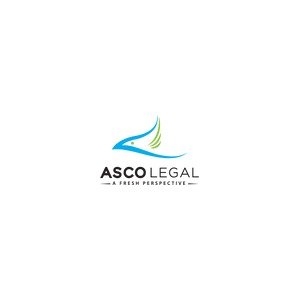Best ESG Advisory & Compliance Lawyers in Auckland
Share your needs with us, get contacted by law firms.
Free. Takes 2 min.
List of the best lawyers in Auckland, New Zealand
About ESG Advisory & Compliance Law in Auckland, New Zealand
ESG stands for Environmental, Social, and Governance. These are critical factors that modern businesses must consider to meet legal standards, investor expectations, and societal norms. In Auckland, ESG advisory and compliance law helps businesses understand and fulfill their obligations relating to environmental protection, fair and ethical workplace practices, and transparent governance. Legal professionals in this field guide organizations as they navigate increasingly complex requirements, helping them to operate responsibly and sustainably. Whether you own a business, manage a company, or work in a compliance role, staying informed about ESG obligations is important for legal and reputational reasons.
Why You May Need a Lawyer
There are several situations where seeking legal assistance for ESG advisory and compliance becomes essential. You may need a lawyer if your company is implementing ESG policies for the first time or looking to align with best practices. Legal support is also crucial during mergers and acquisitions, where ESG risk assessment is key. If your organization is facing regulatory investigations or enforcement actions by New Zealand authorities concerning environmental or social issues, a lawyer can offer representation and advice. Lawyers are valuable when drafting or reviewing contracts to ensure they meet ESG standards, or when reporting to investors and regulators. Consulting a specialist helps ensure you are not only compliant with current laws but also prepared for evolving standards and expectations in the ESG landscape.
Local Laws Overview
Auckland businesses must comply with several local and national laws relating to ESG. The Resource Management Act 1991 governs environmental impacts and sustainability, including land, air, and water protection. The Health and Safety at Work Act 2015 mandates safe workplaces and ethical employee treatment. The Companies Act 1993 covers governance, including disclosure of non-financial risks and responsibilities of directors. Recent developments have seen moves toward mandatory climate-related disclosures for listed companies and large financial institutions, highlighting the trend towards increased transparency. Additionally, human rights and anti-discrimination obligations under the New Zealand Bill of Rights Act 1990 and the Human Rights Act 1993 are highly relevant for social compliance. Staying updated on these laws is essential for successful ESG management in Auckland.
Frequently Asked Questions
What is ESG compliance?
ESG compliance means adhering to laws, regulations, and practices that relate to environmental protection, social responsibility, and governance standards within business operations.
Is ESG compliance mandatory in New Zealand?
Some ESG components are legally required, such as certain environmental and health and safety standards. Others, like integrated ESG reporting, are becoming mandatory for specific sectors, especially large companies and financial institutions.
Who sets ESG regulations in Auckland?
ESG regulations derive from New Zealand legislation, national regulatory authorities, Auckland Council bylaws, and international standards that New Zealand has adopted or endorsed.
What are the penalties for non-compliance?
Penalties can include fines, remediation orders, reputational damage, and, in severe cases, criminal prosecution or civil litigation against directors and officers.
How can companies demonstrate good ESG performance?
Companies can demonstrate good ESG performance by adopting strong governance structures, transparent reporting, engagement with stakeholders, regular audits, and compliance with all relevant laws and sustainability standards.
Are there mandatory ESG disclosures in New Zealand?
Yes, from 2023, large listed companies and some financial institutions are required to make climate-related financial disclosures under new regulations.
What should I look for in an ESG lawyer?
Look for a lawyer with experience in New Zealand ESG regulations, sector-specific understanding, and a proven track record in advising on compliance, risk management, and dispute resolution.
Can ESG compliance affect my company’s access to investment?
Yes, many investors prioritize ESG-compliant companies. Poor performance or non-compliance can limit funding opportunities and attract higher insurance premiums.
How often should ESG policies be reviewed?
ESG policies should be reviewed annually, or earlier in response to new legislation, material business changes, or emerging risks and opportunities.
What are common ESG challenges for Auckland businesses?
Common challenges include meeting new climate disclosure regulations, integrating ESG into company culture, staying updated with evolving standards, and balancing compliance costs with operational goals.
Additional Resources
- New Zealand Ministry for the Environment: Offers guidance on environmental regulations and sustainability practices. - Financial Markets Authority (FMA): Provides information on climate-related disclosures and reporting obligations. - Auckland Council: Publishes local bylaws, policy guidelines, and environmental initiatives relevant for businesses. - New Zealand Human Rights Commission: Offers guidelines on social responsibility and workplace compliance. - BusinessNZ and Sustainable Business Network: Platforms for ESG-driven businesses seeking networking and best practice resources.
Next Steps
If you require legal assistance regarding ESG advisory and compliance in Auckland, start by documenting your current policies and potential areas of concern. Identify stakeholders in your organization who can provide relevant information. Compile any correspondence or notices received from regulators or investors about ESG matters. Then, contact an experienced ESG lawyer or law firm who understands the Auckland and New Zealand regulatory landscape. Schedule a consultation to discuss your unique needs and next steps for compliance or risk management. Proactive engagement with legal counsel will help protect your organization’s reputation, ensure ongoing compliance, and support your long-term sustainability objectives.
Lawzana helps you find the best lawyers and law firms in Auckland through a curated and pre-screened list of qualified legal professionals. Our platform offers rankings and detailed profiles of attorneys and law firms, allowing you to compare based on practice areas, including ESG Advisory & Compliance, experience, and client feedback.
Each profile includes a description of the firm's areas of practice, client reviews, team members and partners, year of establishment, spoken languages, office locations, contact information, social media presence, and any published articles or resources. Most firms on our platform speak English and are experienced in both local and international legal matters.
Get a quote from top-rated law firms in Auckland, New Zealand — quickly, securely, and without unnecessary hassle.
Disclaimer:
The information provided on this page is for general informational purposes only and does not constitute legal advice. While we strive to ensure the accuracy and relevance of the content, legal information may change over time, and interpretations of the law can vary. You should always consult with a qualified legal professional for advice specific to your situation.
We disclaim all liability for actions taken or not taken based on the content of this page. If you believe any information is incorrect or outdated, please contact us, and we will review and update it where appropriate.

















